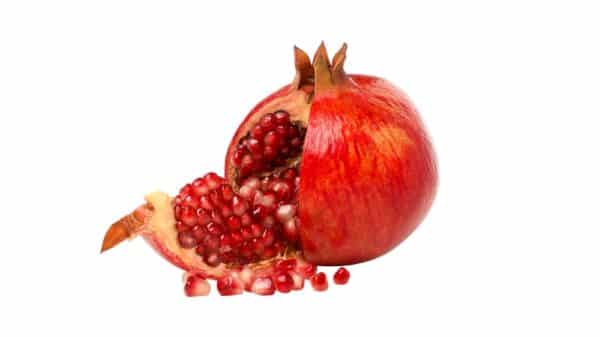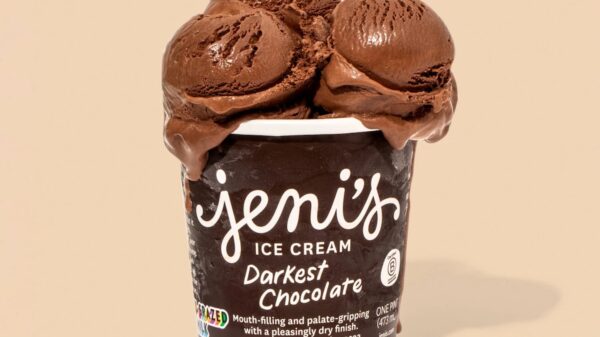If your morning ritual starts with a steaming cup of coffee, you’re definitely not alone. Recent figures from the National Coffee Association reveal that around two-thirds of Americans enjoy coffee daily. Yet, here’s a thought-provoking point: nearly half of US adults face high blood pressure, meaning their systolic blood pressure is above 130 mmHg or diastolic blood pressure exceeds 80 mmHg. So, how does our cherished cup of joe fit into this picture? Is it simply fueling the trend of high blood pressure, or might it actually play a role in keeping it in check? We delved into expert insights and the latest research to bring clarity to the relationship between coffee and blood pressure.
Why Coffee Affects Your Blood Pressure
It’s likely that you adore coffee for its invigorating boost that keeps you awake. However, this same perk can also lead to a temporary increase in blood pressure. “Caffeine can spike blood pressure even in those without any existing hypertension,” explains Kiran Campbell, a Registered Dietitian Nutritionist. The reason behind this is caffeine’s stimulating effect on the central nervous system. It encourages the release of adrenaline and impedes adenosine, a compound that promotes relaxation in our blood vessels. When adenosine is blocked, our blood vessels tighten, which can naturally contribute to a rise in blood pressure. Indeed, research has shown that coffee can elevate blood pressure and heart rate in the short term, but this doesn’t guarantee lingering high blood pressure in the long run.
“Most individuals build a tolerance to caffeine over time. Although studies present mixed conclusions, moderate consumption typically does not lead to a permanent increase in blood pressure for most healthy adults,” notes Dr. Edo Paz, a board-certified cardiologist.
4 Factors That Affect How Coffee Impacts Your Blood Pressure
1. Blocks Adenosine
Adenosine is your body’s natural sleep-inducer, and caffeine works against it. By blocking adenosine receptors, caffeine helps you feel awake. However, it also has implications for your heart health, as this blocking action causes your blood vessels to constrict, thus potentially raising blood pressure.
2. Contains Antioxidants
Oxidative stress and inflammation can hinder your blood vessels from functioning optimally. This is where antioxidants step in. Coffee is packed with antioxidants like polyphenols that help combat oxidative stress, promoting better blood vessel health. Some studies suggest that the advantages of coffee’s antioxidants might actually outweigh the negative blood pressure effects of caffeine itself.
3. Increases Adrenaline
Caffeine acts as a stimulant, triggering your adrenal glands to release adrenaline. This makes your heart race and tightens your blood vessels, resulting in higher blood pressure. However, this is notably pronounced when you’re consuming large amounts of caffeine regularly. Research has shown that moderate coffee intake doesn’t lead to long-term vascular issues.
Interestingly, a study found that individuals with hypertension who enjoyed half to two and a half cups of coffee daily exhibited better vascular function than non-coffee drinkers.
How You Brew It Matters
Did you realize that your brewing method could significantly influence coffee’s impact on your heart health? While brewing styles may not dramatically alter blood pressure, they can affect cholesterol levels, another key player in heart disease and stroke risk.
Unfiltered coffee (think French press or Turkish coffee) tends to be rich in diterpenes, which can elevate your LDL cholesterol levels, known as the “bad” cholesterol. In contrast, filtered coffee—like drip or pour-over styles—contains fewer diterpenes, making it a more heart-friendly choice. Numerous studies have linked filtered coffee consumption to a reduced risk of cardiovascular disease and mortality, while excessive unfiltered coffee can increase such risks.
Ultimately, if you enjoy your rich, unfiltered brews, you might want to balance them with other heart-healthy practices to keep your cholesterol in check.
As you sip your morning cup, keep in mind that coffee’s effects on blood pressure can vary based on individual tolerance, brewing methods, and overall lifestyle. Understanding your body and making informed choices can help you enjoy your coffee while also prioritizing your health.If you’re a coffee enthusiast but also keeping an eye on your cholesterol levels, switching to filtered coffee might be a smart choice. Filtered coffee can help reduce certain compounds that could raise cholesterol levels, allowing you to enjoy your favorite beverage while being mindful of your health.
When it comes to blood pressure, you’re not alone in wondering how much caffeine is safe to consume. Most health experts, including professionals from the FDA and the American Heart Association, suggest that up to 400 mg of caffeine per day—roughly four to five cups of brewed coffee—is generally safe for healthy adults. However, if you have hypertension, it’s wise to tread carefully. It might be best to stick to just one cup each day and see how your body feels.
If you find yourself feeling anxious about coffee consumption, you’re not without options. For those with blood pressure worries, healthcare professionals often recommend limiting your caffeine intake. Think about experimenting with smaller servings, half-caf blends, or even decaf options to ease the jitters while still savoring that rich coffee flavor.
Just remember, not all coffee drinks are created equal, especially when it comes to caffeine content. For instance, a single shot of espresso contains around 63 mg of caffeine, while an 8-ounce cup of regular coffee usually has around 95 mg. You might be surprised to learn that cold brew can pack even more caffeine, depending on how it’s made. If you’re trying to cut back, decaf coffee is your friend—it has a mere 3 mg of caffeine per cup.
If you’re on blood pressure medication or if your hypertension is not well controlled, having a candid conversation with your healthcare provider about your caffeine intake is essential. They can give you personalized advice tailored to your specific needs.
For those concerned about their blood pressure but still loving that daily cup of joe, consider the following tips:
– Monitor Your Blood Pressure: Keep an eye on your numbers by checking your blood pressure before and after you enjoy your coffee. If you’re consuming moderate amounts—like one to two cups a day—and don’t see a significant increase in rates, you’re likely in the clear. Your healthcare provider can help you set a healthy target that works for you.
– Be Caffeine Aware: Remember that caffeine is sneaky and can be found in things like tea, soft drinks, chocolate, and energy drinks. Keeping tabs on your total intake will help you stay below that 400 mg guideline and perhaps allow for more coffee in your diet.
– Try Half-Caf or Decaf: If caffeine makes you feel jittery or if you’ve been advised to cut back, half-caf blends or decaf options can be excellent alternatives. You still get to enjoy coffee, but without the spike in heart rates.
– Consult a Healthcare Professional: If you have any doubts or concerns, don’t hesitate to reach out to a healthcare provider. They can fine-tune a coffee plan that aligns with your health goals.
The bottom line for coffee lovers is that you can usually enjoy your beloved brew without fear. While you might experience an immediate spike in blood pressure from caffeine, long-term studies indicate that habitual coffee consumption doesn’t lead to elevated blood pressure levels for most people. In fact, coffee’s antioxidants can support your vascular health. For many, three to four cups daily are fine, but always check in with your doctor if you’ve got underlying health issues. After all, you deserve to savor every sip while keeping your wellbeing in check!
Image Source: Unsplash































